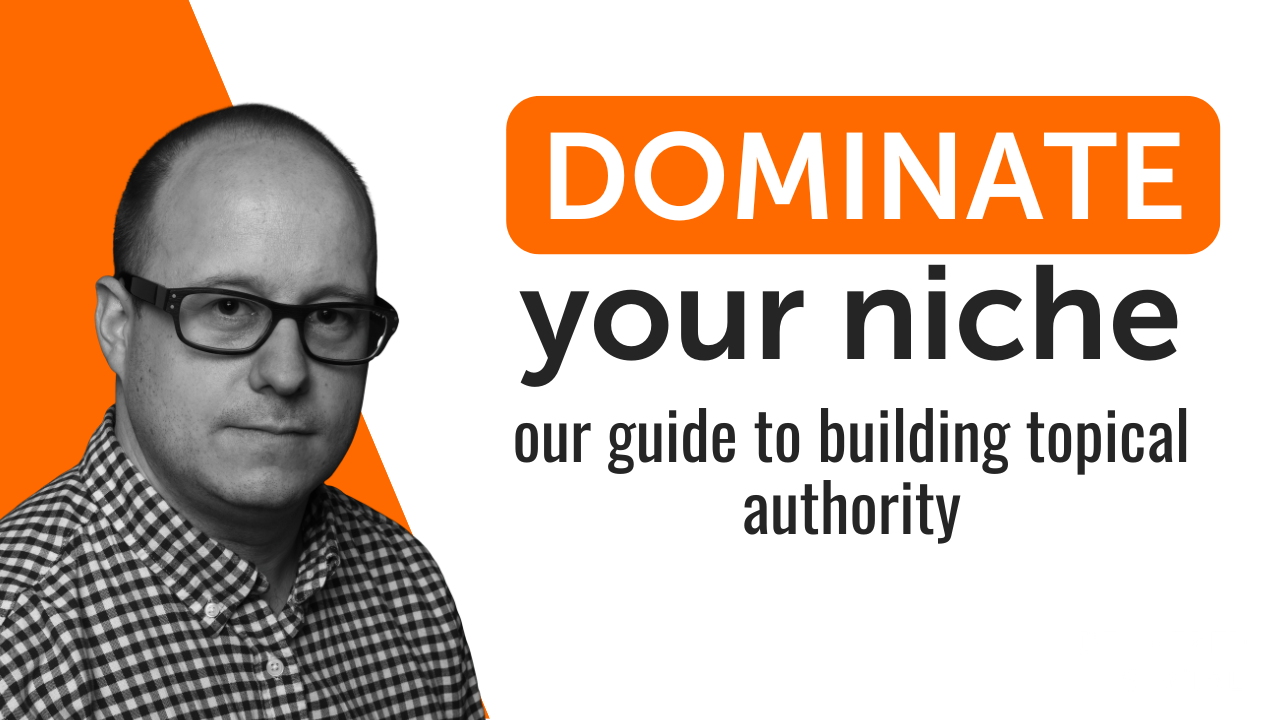
If you want to dominate search rankings in your industry, you can’t just chase high-volume keywords and hope for the best. Google has shifted its focus toward topical authority, favoring websites that demonstrate deep expertise in a subject rather than just optimizing for individual keywords.
So, what does that mean for you? Instead of publishing random blog posts that loosely relate to your niche, you need a strategic, interconnected content plan that signals to search engines and users that your site is the go-to resource in your field.
This guide will walk you through the key steps to building topical authority, from structuring a content hub and optimizing internal links to expanding and updating content over time. By the end, you’ll have a clear roadmap to creating an SEO strategy that establishes you as an industry leader.

Understanding Topical Authority
Topical authority is Google’s way of determining whether your site is an expert on a subject. Instead of evaluating your content on a post-by-post basis, search engines analyze how comprehensive and interconnected your content is across an entire topic. The more depth and coverage you provide, the more Google trusts your site as an authoritative source.
Google’s algorithms have evolved beyond simple keyword matching. Now, they use natural language processing and entity-based indexing to understand topics and how different pieces of content relate to each other. A single high-ranking blog post isn’t enough—Google looks for a network of content that fully covers a subject. Websites that lack structure and depth struggle to compete, while those with well-organized content hubs are more likely to rank for multiple related search queries.
Think about sites like Healthline for medical information or Ahrefs for SEO knowledge. These websites don’t just publish standalone articles—they create content ecosystems with pillar pages, supporting articles, and internal links that make it easy for Google and readers to understand their expertise.
For example, if you run a fitness blog and want to dominate the topic of strength training, you wouldn’t just write one article about how to build muscle. Instead, you’d create a content hub covering different aspects of strength training, including specific exercises, workout plans, muscle recovery, and nutrition. Each supporting article would link back to a central pillar page, reinforcing the depth and relevance of your content.
Creating a Strategic Content Hub
Building topical authority starts with a well-structured content hub. A content hub is a collection of related articles centered around a core topic, with a pillar page acting as the main guide. This structure helps both search engines and users understand how your content is organized, making it easier to establish expertise in your niche.
How to Structure a Content Hub
- Pillar content: A comprehensive, high-level article covering a broad topic. This serves as the foundation of your hub and targets competitive keywords.
- Cluster content: Supporting articles that go in-depth on specific subtopics related to the pillar content. These target long-tail keywords and niche search queries.
- Internal linking: A strategic web of links connecting the pillar page and cluster content to reinforce topic relevance and authority.
For example, if your niche is digital marketing and your focus is email marketing, your content hub could be structured with a pillar page like “The Ultimate Guide to Email Marketing for Beginners.” Supporting articles would cover topics such as how to write high-converting email subject lines, the best email marketing tools, A/B testing strategies, and tips for improving email deliverability. Each of these supporting articles would link back to the pillar page, creating a structured, SEO-friendly content ecosystem.
Mastering Internal Linking for Authority Transfer
Internal linking is one of the most underrated yet powerful SEO strategies for building topical authority. When done correctly, it helps distribute link equity across your site, improves crawlability, and reinforces the relationships between your content pieces.
Google’s algorithms analyze internal links to understand which pages are most important and how different topics on your site connect. A strong internal linking structure helps pass authority from high-performing pages to newer or lower-ranking ones, improves user navigation, and ensures search engines can effectively index your content. Without a clear linking strategy, even the best content can struggle to rank.
To maximize the benefits of internal linking, link from your pillar page to relevant cluster content and ensure each supporting article links back to the pillar page. Using descriptive anchor text rather than generic phrases like “click here” also helps search engines understand the relevance of your links. Regularly reviewing and updating your internal links as your content evolves keeps your site structure strong and your authority intact.
Expanding and Updating Content for Long-Term Authority
Building topical authority isn’t a one-time effort. Search engines reward websites that consistently provide fresh, relevant, and up-to-date content. Expanding and refining your content over time ensures that your site remains a trusted source in your niche.
Google favors content that stays current and comprehensive. If your competitors are regularly updating their content while yours remains static, they have a better chance of outranking you. Regularly reviewing your articles to update statistics, add new insights, and improve readability keeps your content relevant and engaging.
Adding new subtopics to your content hub strengthens your authority and ensures you remain ahead of industry trends. Repurposing content into different formats, such as videos or infographics, can also help expand your reach and reinforce your expertise. Monitoring user behavior through analytics tools allows you to identify content gaps and refine your strategy based on how visitors interact with your site. Implementing these strategies effectively can be challenging, which is why working with a specialist can make all the difference. If you’re considering expert support, SIXGUN, an award-winning SEO company in Melbourne, can help you structure your content for long-term topical authority and search visibility.
Leveraging External Signals to Reinforce Authority
While high-quality content and internal linking build a strong foundation for topical authority, external signals play a crucial role in proving your credibility to search engines. Backlinks, brand mentions, and social proof all help establish your site as a trusted source within your niche.
Backlinks act as votes of confidence from other websites. When reputable sites link to your content, it signals to Google that your information is valuable and authoritative. However, not all backlinks are equal—quality matters more than quantity. Creating link-worthy content such as original research, case studies, or in-depth guides increases the likelihood of earning high-quality backlinks. Guest posting on reputable industry sites and building relationships with influencers can also help attract natural links.
Brand mentions, even without a direct backlink, signal to search engines that your site is being recognized within your industry. Engaging in industry discussions, encouraging customer reviews, and participating in expert collaborations all contribute to your credibility. Sharing your content across multiple channels increases its visibility and the likelihood of being referenced by others.
Conclusion
Building topical authority isn’t about chasing individual keywords—it’s about creating a well-structured, interconnected content ecosystem that proves your expertise in a subject. By focusing on depth, relevance, and long-term strategy, you can establish your site as the go-to resource in your niche.
Developing a strategic content hub, optimizing internal linking, and continuously updating content ensure that your site remains relevant and authoritative. Leveraging external signals like backlinks and brand mentions further strengthens your credibility in the eyes of search engines and users.
Building authority takes time, but the payoff is worth it. The more comprehensive and structured your content strategy, the better your chances of ranking for multiple queries, attracting organic traffic, and solidifying your position in your industry. Start by auditing your current content, identifying gaps, and structuring your site for long-term success. Over time, your efforts will translate into sustained rankings, higher engagement, and a reputation as an industry leader.
Interested In Working Together?
Introducing Delivered Social. We're The Most-Rated Digital Agency In Surrey & Hampshire – We've Got To Be Doing Something Right.
Delivered Social is a digital marketing agency with one mission—to help businesses grow. We're famous in Guildford and Portsmouth for our social clinics. We believe in free advice. We build lasting relationships because our team prides itself on being helpful, which our clients appreciate.
If you are looking for a new website or an agency to manage your social media presence, we can help.
If you need something slightly different, here's a super handy list of all our services, or you can always email us.























